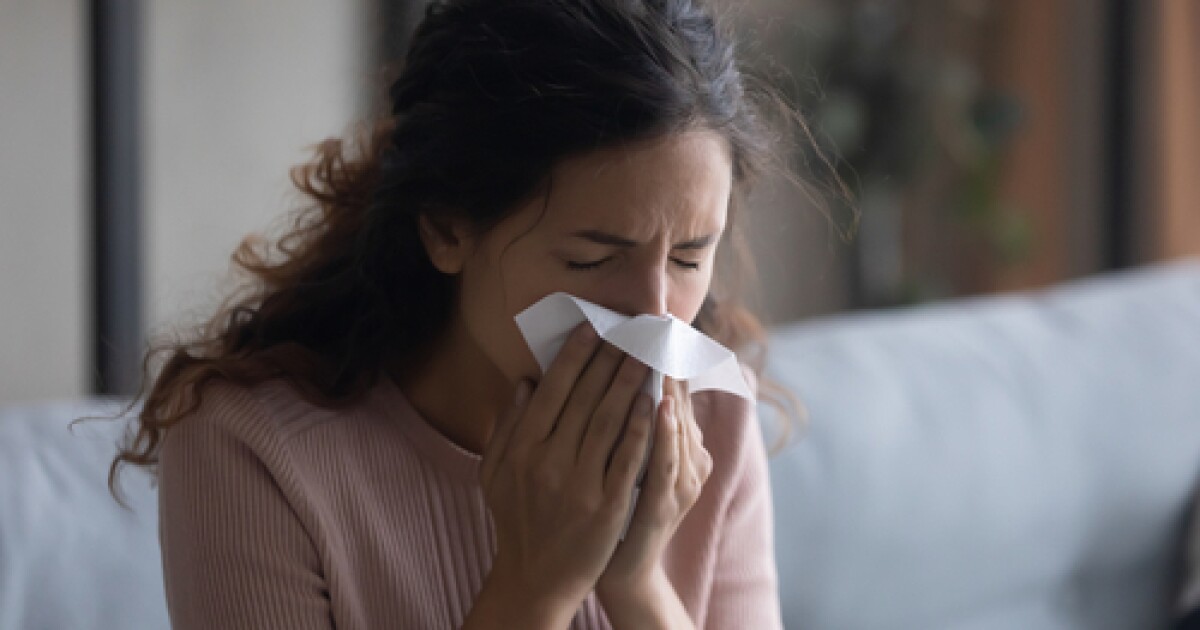Health
Tackle Fall Allergies Early: Expert Tips for Relief

As the mornings begin to cool, many people are experiencing the onset of fall allergies, which affect millions worldwide. Symptoms such as sneezing, itchy eyes, and runny noses are common as seasonal allergies, specifically allergic rhinitis, often termed hay fever, become prevalent. According to Dr. Nandi, these allergies are triggered when the immune system reacts to pollen in the air, with ragweed being the primary culprit during this time of year.
Fall allergy season typically begins in August, peaks in September and October, and can last until the first hard frost. Ragweed, a plant that grows wild across all states, releases pollen that can travel significant distances. This means individuals may experience symptoms even if ragweed is not present in their immediate vicinity. Climate change compounds the issue, leading to warmer and longer summers, which in turn results in an earlier and extended pollen season.
Current estimates indicate that approximately 32% of adults and 27% of children suffer from seasonal allergies. Symptoms can vary, including coughing, fatigue, skin rashes, hives, and asthma flare-ups. To manage these symptoms effectively, individuals should take proactive measures.
Effective Strategies to Combat Allergies
One of the most effective strategies is to avoid exposure to allergens by monitoring pollen counts. Staying indoors during peak pollen times, particularly in the morning, can significantly reduce symptoms. Keeping doors and windows closed also helps. When outdoors, wearing sunglasses, a hat, and a high-quality mask can provide additional protection during yard work.
Once back inside, changing clothes, showering, and washing hair can help eliminate any pollen that may have clung to skin and clothing. Dr. Nandi emphasizes the importance of starting allergy medications early. For optimal results, individuals should begin taking medications approximately two weeks before symptoms typically arise and continue for a few weeks after the first frost. Over-the-counter options such as antihistamines, nasal sprays, and eye drops can provide relief.
For those with severe or persistent allergies, seeking the expertise of a board-certified allergist is advisable. Allergists can offer advanced treatments such as immunotherapy, which includes allergy shots or tablets designed to desensitize the immune system. This approach can reduce or even eliminate symptoms over time.
Consultation for Personalized Care
If symptoms worsen or if an individual has not been previously tested, consulting with an allergist is crucial. These specialists can identify the specific allergens causing symptoms and provide treatment options that are not available over the counter. They can also develop a personalized management plan, allowing individuals to enjoy fall without the discomfort associated with allergies.
By taking these steps and seeking appropriate medical guidance, it is possible to navigate the fall season more comfortably, minimizing the impact of allergies on daily life.
-

 Lifestyle5 months ago
Lifestyle5 months agoLibraries Challenge Rising E-Book Costs Amid Growing Demand
-

 Sports4 months ago
Sports4 months agoTyreek Hill Responds to Tua Tagovailoa’s Comments on Team Dynamics
-

 Sports4 months ago
Sports4 months agoLiverpool Secures Agreement to Sign Young Striker Will Wright
-

 Lifestyle4 months ago
Lifestyle4 months agoSave Your Split Tomatoes: Expert Tips for Gardeners
-

 Lifestyle4 months ago
Lifestyle4 months agoPrincess Beatrice’s Daughter Athena Joins Siblings at London Parade
-

 Science4 months ago
Science4 months agoSan Francisco Hosts Unique Contest to Identify “Performative Males”
-

 World4 months ago
World4 months agoWinter Storms Lash New South Wales with Snow, Flood Risks
-

 Science5 months ago
Science5 months agoTrump Administration Moves to Repeal Key Climate Regulation
-

 Business5 months ago
Business5 months agoSoFi Technologies Shares Slip 2% Following Insider Stock Sale
-

 Science5 months ago
Science5 months agoNew Tool Reveals Link Between Horse Coat Condition and Parasites
-

 Sports5 months ago
Sports5 months agoElon Musk Sculpture Travels From Utah to Yosemite National Park
-

 Science5 months ago
Science5 months agoNew Study Confirms Humans Transported Stonehenge Bluestones









